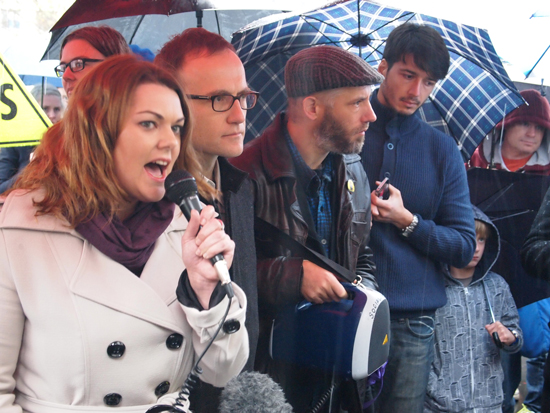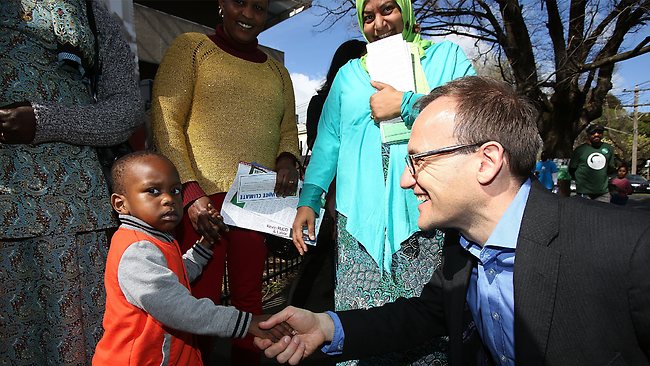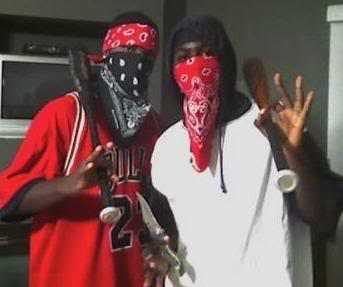Inner Melburnian conservationists must be fools for voting for Adam Bandt.
Greens deputy leader Adam Bandt has retained the Greens seat of Melbourne, but his first comment in his victory speech last night was never to be about the environment.
Just before 9pm Mr Bandt opened by declaring his win:
“This is a win for people power, but more than that it’s a win for refugees.”
Mr Bandt said he wanted to recognise those living in public housing, migrants and in particular those from the African Australian community. Australia is an open door to as many black Africans who want to move here.
“Many countries, many religions, many groups have come together and said we want a voice in Parliament and I can tell you this: I will keep working for you every day for the next three years and we will make sure everyone across this country understands just how fantastic it is that you are here with us in Melbourne.”
Mr Bandt won the seat from Labor in 2010.
Thanks to unfettered refugee encouragment from The Refugee Party (alias the Once Were Greens), Melbourne ethnic street gangs dominated by idle African and Middle Eastern refugees and Pacific Islanders have become more violent.
Idle ethnic youth in ghettos are not integrated into Australian society. Their culture and third world lifestyles are incompatible with Australian traditional ways of life. They do not belong to Australian society and will never fit it.
They know this so they attack Australians. Drive by shootings are becoming like those in Sydney. Gangs of weapon-weilding black males roam Mebourne’s ethnic streets at night.
Increasing seen by Victorian Police in Melbourne is the disturbing emergence of a new generation of gangs, often involving Pacific Islander or African youths, who, under a guise of robbery, bash strangers for kicks.
In July 2012, eight Islander teenagers as young as 14 were charged over a spate of robberies and bashings of taxi drivers.
Victorian Police’s Detective Superintendent Boyle has stated publicly that ‘”Victoria Police is not in denial about gang presence.”
”All you can put that down to is recreational violence” Boyle says. ”There’s no reasoning behind it. The objective is to do what they wanted to do, steal an item. For them to still assault them afterwards just doesn’t make sense.”
Local community leaders are also concerned. While some dispute the notion of organised gangs and object to the labelling of young people as gang members, they see an escalating problem. Abeselom Nega, who works with young refugees, particularly Africans, says he was recently shown Victoria Police data demonstrating that African and Pacific Islander youth are over-represented in the crime rates.
Pacific Islander community leader Ikani Taliai has already seen too many young people fall into street gangs.
”These kids see a gang as their new form of community. They don’t fit into their parents’ community and they don’t fit into the Australian community. It’s as simple and as complex as that,” he says.
Taliai, from the United Pasifika Council of Victoria, a body designed to bring together registered Maori and Pacific Islander community groups, thinks some Islanders have already graduated from street crime to organised crime.
”It’s reached a critical mass now. You can’t ignore the fact that the focus has now been put on our communities for a negative,” Taliai says. ”Because of these issues around violent crime, it’s bubbled up. If it’s left to fester, you will end up with serious organised crime.”
The African gangs are obsessed with US black gang culture, from the wearing of the red and blue of feuding LA gangs the Bloods and Crips, to spraying 187 – the penal code for homicide in California – on walls.
The suburbs where gangs are most prominent, such as Footscray, Sunshine, St Albans, Broadmeadows, Springvale and Dandenong, have long battled with youth crime, partly, Boyle says, because they remain primary locations for the settlement of migrants and refugees. Their streets are filled with poverty, uncertainty and other youths in similar situations.
He also cautions against assuming Melbourne is awash with roaming posses intent on unbridled chaos. ”Yes, we’ve had some bad activities happening in Melbourne, but it doesn’t mean we’ve got mayhem. Not even close,” Boyle says.
”To the extent that there are absolute no-go zones, you can’t compare the back streets of Melbourne to the back streets of LA. We’d be laughed at. They would think this is a sanctuary.”
 “Melburnians will open their hearts to accommodate refugee housing in Richmond”
“Melburnians will open their hearts to accommodate refugee housing in Richmond”

